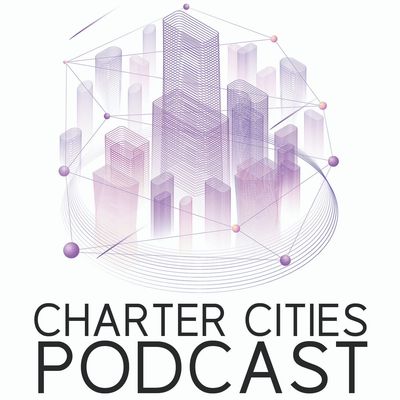The Charter Cities Podcast explores how charter cities can help solve some of the largest challenges of the 21st century, from urbanization to global poverty to migration. Each episode Mark Lutter interviews experts in international development, new cities, finance, entrepreneurship, and governance, to develop a better understanding of the various aspects of charter cities If you want to learn more visit the Charter Cities Institute at https://www.chartercitiesinstitute.org/
https://www.chartercitiesinstitute.org/
episode 16: State Capacity, Religious Toleration, and Political Competition with Mark Koyama
Today’s guest is Mark Koyama, Economic Historian at George Mason University. Mark recently co-authored Persecution & Toleration: The Long Road to Religious Freedom with Noel Johnson, and in this episode, we talk to Mark about some of its big themes – state capacity, religious toleration, and political competition. We begin by hearing Mark’s ideas about a key argument in his book, the connection between religious freedom and the development of liberal societies. From there, we unpack the meaning of the idea of state capacity which springboards a discussion on the relationship between strong states and the treatment of religious minorities. To flesh out some of the nuances of this idea, our discussion hones in on the treatment of Jews during the Black Death during the Holy Roman Empire. On the topic of state-building, we look at some examples of small city-states versus medium states in Europe, hearing Mark’s ideas on why the latter had more lasting power. We also speak about the role of weaponry in state-building. Our conversation moves to focus on the idea of shocks to a local labor pool and how these forces affect wages and markets in different ways. Following this, Mark talks about the persecution of Christian ‘heretics’ during the Reformation and the role of the printing press as well as the Ottoman Empire. We speak about the influence of the ideas of Locke and Spinoza on religious toleration and then move on to critically examine the ‘everything exists is efficient’ argument as it pertains to state-building. Wrapping up, we talk to Mark about how deep roots literature accounts for state-building in Europe, the role of counterfactual thinking in economic history, and the role of data and analytic narratives in understanding history. We round off the episode with an exchange about how an understanding of economic history will make Libertarian arguments against the state less convincing. Tune in today!
Key Points From This Episode:
• Mark’s new book looking at how we get modern, liberal societies through the lens of religious freedom.
• Other indicators or drivers for Liberalism and why Mark sees religious freedom as a major one.
• Examples of so-called liberal states suppressing religion.
• Liberal states defined as states which place value in having religious freedom.
• Mark’s definition of state capacity, another major theme in his book.
• Tracing the evolution of state capacity as a phenomenon and a term.
• The relationship between strong states and the treatment of religious minorities.
• Jewish tolerance and pogroms during the Black Death in the Holy Roman Empire.
• The role of the size of political units on the development of state capacity in Europe.
• How (the cost of) weaponry influences state-building and state capacity.
• How different types of labor shock affect wages and markets.
• Why some Christian sects were persecuted around the time of the Reformation and the printing press.
• Whether the political decentralization of the Holy Roman Empire and the Ottoman Turks are related to the Reformation.
• The ‘deep roots’ argument and how it fits in with the development of modern Europe.
• Mark’s book section dealing with the ideas of Locke and Spinoza concerning religious toleration.
• Why the argument that ‘everything which exists is efficient’ is not helpful for understanding state policies.
• How counterfactuals can be applied to history and which approaches are useful.
• The role of data and analytic narratives in understanding history.
• The relationship between one’s understanding of economics and one’s politics.
• The importance of economic history for libertarians skeptical of state capacity.
• A final takeaway from Mark’s research about the dangers of identity rules.
Links Mentioned in Today’s Episode:
Mark Lutter
Charter Cities Institute on Twitter
Charter Cities Institute on Facebook
Mark Koyama
George Mason University
Noel Johnson
Persecution & Toleration: The Long Road to Religious Freedom
Tyler Cowen’s Blog Post on State Capacity
Charles Tilly
Michael Mann
‘Persecution Perpetuated’
‘The Fractured-Land Hypothesis’
Escape From Rome
Adam Smith
Martin Luther
Professor Peter Leeson
John Locke
Benedict de Spinoza
David Hume
Thomas Hobbes
Robert Nozick
David Friedman
